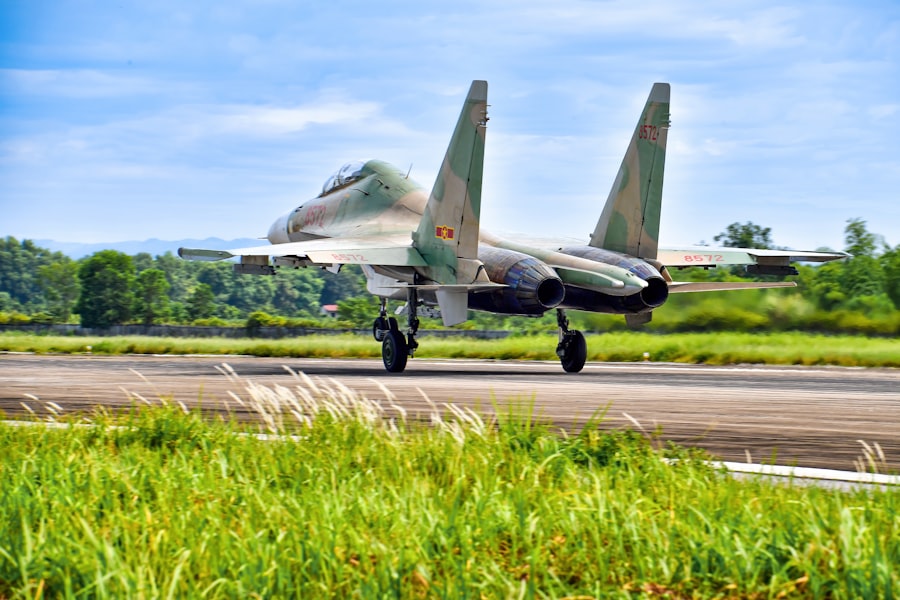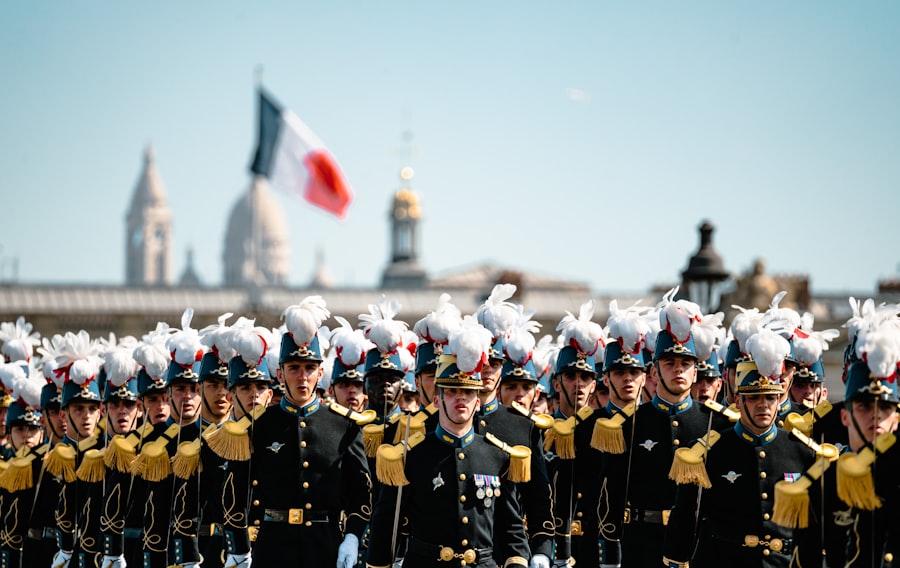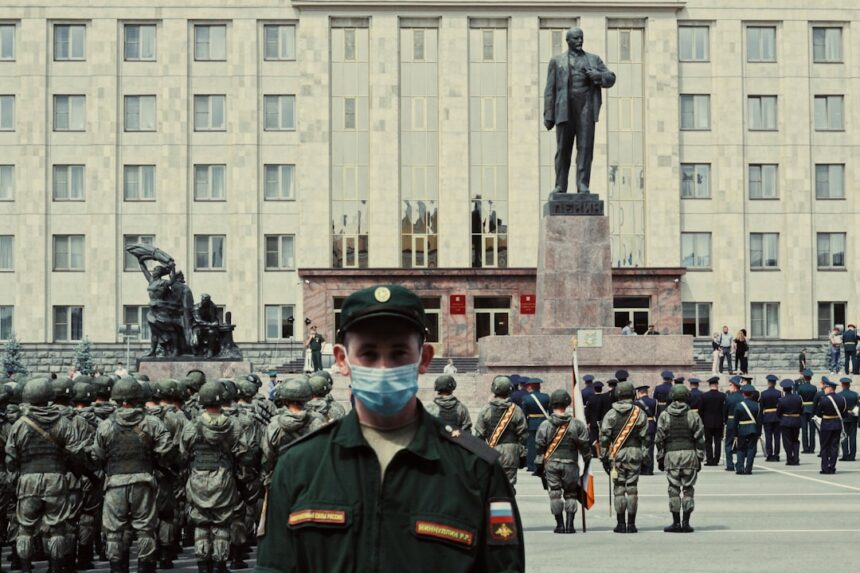The Russian military has long been a formidable force on the global stage, yet it faces significant challenges that threaten its operational effectiveness. One of the most pressing issues is the deficit within its Non-Commissioned Officer (NCO) corps. This shortage has profound implications for the military’s ability to execute complex operations, maintain discipline, and foster leadership among enlisted personnel.
The NCO corps serves as the backbone of any military organization, bridging the gap between commissioned officers and enlisted soldiers. In Russia, however, this critical component is under strain, raising concerns about the overall readiness and capability of its armed forces. The NCO corps deficit is not merely a numbers game; it reflects deeper systemic issues within the Russian military structure.
As the military grapples with modernization efforts and evolving warfare tactics, the need for a robust and well-trained NCO corps becomes increasingly apparent. The challenges faced by the Russian military in this regard are multifaceted, encompassing historical, cultural, and operational dimensions. Understanding these complexities is essential for grasping the current state of the NCO corps and its implications for Russia’s military future.
Key Takeaways
- The Russian military is facing a deficit in its NCO corps, which has significant implications for its operational effectiveness.
- The historical context of the NCO corps in the Russian military dates back to the Imperial Russian Army and has evolved through various military reforms.
- Currently, the NCO corps in the Russian military is understaffed and lacks the necessary experience and expertise to effectively support military operations.
- The deficit in the NCO corps has a direct impact on the Russian military’s ability to conduct complex operations and maintain readiness.
- Factors contributing to the NCO corps deficit in the Russian military include low pay, lack of professional development opportunities, and competition from the private sector.
Historical Context of the NCO Corps in the Russian Military
To comprehend the current state of the NCO corps in the Russian military, one must first delve into its historical context. The role of NCOs in Russia has evolved significantly over the decades, shaped by various political and military transformations. During the Soviet era, NCOs were often viewed as essential leaders within the ranks, responsible for maintaining discipline and executing orders from higher command.
However, the collapse of the Soviet Union in 1991 marked a turning point, leading to a decline in the status and effectiveness of NCOs. In the post-Soviet period, the Russian military underwent a series of reforms aimed at restructuring its forces. These changes often overlooked the importance of a strong NCO corps, leading to a gradual erosion of its capabilities.
The emphasis shifted towards commissioned officers, leaving NCOs with limited authority and inadequate training. This historical neglect has contributed to the current deficit, as many potential recruits are deterred by a lack of clear career progression and professional development opportunities within the NCO ranks.
Current State of the NCO Corps in the Russian Military

Today, the state of the NCO corps in the Russian military is characterized by a troubling shortage of personnel and a lack of effective leadership at lower levels. Reports indicate that many units are operating with insufficient NCOs, which hampers their ability to function efficiently. This deficit is particularly pronounced in specialized units where technical expertise and leadership are crucial for mission success.
The absence of experienced NCOs can lead to confusion on the battlefield, as junior enlisted personnel may struggle to execute orders without proper guidance. Moreover, the current NCO corps faces challenges related to morale and motivation. Many NCOs report feeling undervalued and overworked, leading to high turnover rates and difficulty in retaining skilled personnel.
The lack of investment in training and professional development further exacerbates these issues, as potential recruits may seek opportunities elsewhere where their skills and contributions are recognized and rewarded. As a result, the Russian military finds itself in a precarious position, with an NCO corps that is not only understaffed but also lacking in cohesion and effectiveness.
Impact of the NCO Corps Deficit on Military Operations
| Impact of the NCO Corps Deficit on Military Operations |
|---|
| Decreased leadership and mentorship for junior enlisted personnel |
| Increased workload and stress on existing NCOs |
| Reduced unit readiness and effectiveness |
| Challenges in maintaining discipline and standards |
| Difficulty in conducting training and development programs |
The implications of the NCO corps deficit extend far beyond personnel numbers; they directly affect military operations and overall effectiveness. A well-functioning NCO corps is vital for maintaining discipline, ensuring that orders are executed efficiently, and fostering a culture of accountability among enlisted personnel. In situations where NCOs are lacking or inadequately trained, units may experience breakdowns in communication and coordination, leading to operational failures.
Furthermore, the absence of experienced NCOs can hinder the development of junior enlisted soldiers. Without proper mentorship and guidance from seasoned leaders, these soldiers may struggle to acquire essential skills and knowledge necessary for their roles. This gap in training can have cascading effects on unit readiness and effectiveness, ultimately impacting mission outcomes.
As Russia continues to engage in various military operations both domestically and internationally, addressing the NCO corps deficit becomes increasingly critical to ensuring operational success.
Factors Contributing to the NCO Corps Deficit
Several factors contribute to the ongoing deficit within the Russian military’s NCO corps. One significant issue is the perception of NCO roles within Russian military culture. Traditionally, there has been a strong emphasis on commissioned officers as primary leaders, often relegating NCOs to subordinate positions with limited authority.
This cultural bias can deter potential recruits from pursuing careers as NCOs, as they may perceive these roles as lacking prestige or influence. Additionally, systemic issues within recruitment and retention practices exacerbate the problem. The Russian military has struggled to attract qualified candidates for NCO positions due to low salaries, limited career advancement opportunities, and inadequate training programs.
Many individuals who might consider joining as NCOs opt for civilian careers instead, where they perceive better prospects for growth and stability.
Efforts to Address the NCO Corps Deficit

In response to these challenges, there have been concerted efforts within the Russian military to address the NCO corps deficit. Recent reforms have aimed at enhancing recruitment strategies and improving training programs for NCOs. The military has recognized that a strong NCO corps is essential for operational effectiveness and has begun implementing initiatives designed to elevate the status of these leaders within the ranks.
One notable effort has been the introduction of specialized training programs aimed at developing leadership skills among potential NCO candidates. These programs focus on instilling a sense of responsibility and accountability while providing practical experience in managing troops effectively. Additionally, there have been initiatives to improve compensation packages for NCOs, making these positions more attractive to potential recruits.
By addressing both cultural perceptions and practical incentives, the Russian military hopes to rebuild its NCO corps and enhance overall readiness.
Comparison of the Russian NCO Corps with Other Countries
When comparing the Russian NCO corps with those of other countries, significant differences emerge that highlight both strengths and weaknesses. Many Western militaries place a strong emphasis on their NCO corps as essential leaders who play a pivotal role in bridging the gap between officers and enlisted personnel. In these forces, NCOs are often afforded considerable authority and responsibility, enabling them to lead effectively on various levels.
In contrast, Russia’s historical emphasis on commissioned officers has resulted in a less empowered NCO corps. While some nations have successfully integrated their NCOs into decision-making processes and leadership roles, Russia’s approach has often left these leaders with limited influence. This disparity can impact operational effectiveness during joint exercises or multinational missions where collaboration between different military structures is essential.
Challenges in Recruiting and Retaining NCOs in the Russian Military
Recruiting and retaining qualified individuals for NCO positions remains a significant challenge for the Russian military. The perception of low status associated with these roles deters many potential candidates from pursuing careers as NCOs. Furthermore, high turnover rates among existing personnel create instability within units, making it difficult to maintain continuity in leadership.
The lack of clear career progression pathways also contributes to retention issues. Many individuals who enter as enlisted soldiers may feel that their opportunities for advancement are limited if they choose to pursue an NCO role. This perception can lead them to seek alternative career paths outside of the military altogether.
Addressing these challenges requires a comprehensive approach that not only enhances recruitment efforts but also fosters an environment where NCOs feel valued and supported throughout their careers.
Training and Professional Development for NCOs in the Russian Military
Training and professional development are critical components in strengthening the Russian military’s NCO corps. Historically, there has been insufficient investment in training programs specifically designed for NCOs, leading to gaps in knowledge and skills among these leaders. Recognizing this shortcoming, recent reforms have sought to enhance training opportunities for potential and existing NCOs.
These initiatives include specialized courses focused on leadership development, tactical proficiency, and effective communication skills. By equipping NCOs with the tools they need to lead effectively, the Russian military aims to create a more capable and confident corps that can navigate complex operational environments. Additionally, fostering a culture of continuous learning will be essential for ensuring that NCOs remain adaptable to evolving warfare tactics and technologies.
Recommendations for Strengthening the NCO Corps in the Russian Military
To effectively address the ongoing deficit within its NCO corps, several recommendations can be made for strengthening this critical component of the Russian military. First and foremost, there should be a concerted effort to elevate the status of NCO roles within military culture. This could involve public recognition programs that highlight exemplary performance among NCOs or initiatives that promote their contributions to overall mission success.
Furthermore, enhancing recruitment strategies is essential for attracting qualified candidates into NCO positions. This could include targeted outreach efforts aimed at young individuals considering military service or partnerships with educational institutions that emphasize leadership training. Additionally, improving compensation packages and career advancement opportunities will be crucial for retaining skilled personnel within the ranks.
The Importance of Addressing the NCO Corps Deficit
In conclusion, addressing the deficit within the Russian military’s NCO corps is imperative for ensuring operational effectiveness and maintaining readiness in an increasingly complex global security environment. The challenges faced by this critical component are multifaceted but not insurmountable. By recognizing historical shortcomings, investing in training and professional development, and fostering a culture that values leadership at all levels, Russia can rebuild its NCO corps into a formidable force capable of meeting contemporary challenges.
The importance of a robust NCO corps cannot be overstated; it serves as a linchpin for effective military operations and plays a vital role in shaping future leaders within the armed forces. As Russia navigates its path forward in an evolving geopolitical landscape, prioritizing efforts to strengthen its NCO corps will be essential for ensuring that its military remains capable and resilient in facing emerging threats.
In the ongoing analysis of the Russian military’s NCO corps deficit, it is crucial to consider the broader implications of leadership gaps within military structures. An insightful article that complements this discussion can be found on the War Room’s website. This piece delves into the strategic challenges and operational inefficiencies that arise from such deficits, providing a comprehensive overview of the situation. For a deeper understanding, you can read the related article by visiting com/’>this link.
This resource offers valuable perspectives on how these leadership shortages impact military effectiveness and readiness.
WATCH NOW! 🎖️ Plot Twist: Russia’s Military Is Being Eaten Alive By Its Own Corruption
FAQs
What is the NCO corps deficit in the Russian military?
The NCO (non-commissioned officer) corps deficit in the Russian military refers to the shortage of trained and experienced NCOs within the ranks of the armed forces. This deficit has been identified as a significant challenge for the Russian military in terms of maintaining operational readiness and effectiveness.
What are the causes of the NCO corps deficit in the Russian military?
The NCO corps deficit in the Russian military can be attributed to a variety of factors, including a lack of investment in NCO training and education, low retention rates, and the overall structure and organization of the military. Additionally, the demanding nature of military service and the challenging conditions in which NCOs operate can contribute to difficulties in recruiting and retaining qualified personnel.
What are the implications of the NCO corps deficit for the Russian military?
The NCO corps deficit has significant implications for the Russian military, including potential impacts on operational readiness, leadership effectiveness, and overall military capability. Without an adequate number of trained and experienced NCOs, the military may struggle to effectively carry out its missions and maintain the necessary level of discipline and organization within its ranks.
What measures are being taken to address the NCO corps deficit in the Russian military?
To address the NCO corps deficit, the Russian military has implemented various measures, including efforts to improve NCO training and education, enhance retention incentives, and reevaluate the overall structure and organization of the NCO corps. Additionally, the military has sought to increase recruitment efforts and improve the overall working conditions and support for NCOs.




